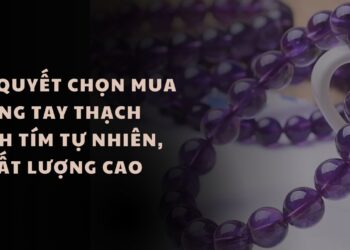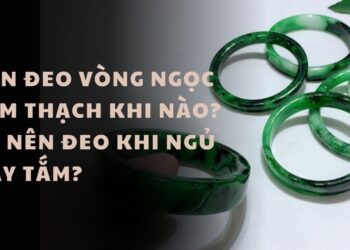Sofia Coppola’s second movie as a director is more than a breakthrough: it’s an insouciant triumph. She conjures a terrifically funny, heartbreakingly sad and swooningly romantic movie from almost nowhere and just makes it look very easy – as well as very modern and very sexy. It is a funky little Brief Encounter for the new century.
Bill Murray is Coppola’s leading man, in a part she says she wrote with him in mind. Now, Murray can be high-risk casting; everyone knows how good he is, but when he decides to switch off and just coast, no one looks more contemptuously uninterested. (Remember him in Osmosis Jones?) Here, though, Murray’s Mitchum-ish not-caring aura is channelled and shaped in just the right way, and he gives one of the best performances of his career.
Murray plays Bob, a has-been movie star staying at a vast Tokyo hotel – a virtual mini-city-state with its own complex of bars, restaurants and gym facilities – where he is filming a Japanese whisky commercial: that lucrative gig notoriously accepted by the grandest of real-life Hollywood stars on the understanding that the ad will never be shown in the US.
Murray candidly despises himself for doing this, and is all too aware that a big reason for it, apart from the money, is to get away from a marriage that is starting to go sour.
Meanwhile, in another part of the hotel, Charlotte, played by Scarlett Johansson, is a thoughtful young woman matching Murray’s menopausal ennui with a quarterlife crisis of her own. She has been married for just two years to John, a hotshot photographer, played by Giovanni Ribisi. John is on an assignment taking pictures of a fashionable indie band and Charlotte has agreed to come along for the ride and amuse herself as best she may while John is out working.
But alienated and unsettled by Tokyo’s clamorous high-rise strangeness, Charlotte experiences a flash of panic about her own life. What is she doing here? Does she even know that much about her husband? Her quiet dismay is deepened when John is obviously wildly excited at hanging out with an appalling Hollywood airhead with an unearthly similarity to Britney Spears. Charlotte, the Yale graduate in her unflattering woollen tank-top is made to feel dowdy and dull by this jabbering Valley girl.
So Bob and Charlotte are pretty well made for each other. During strained conversation with John’s dullard buddies in the bar, Charlotte makes eye contact with Bob who is drinking himself into oblivion there every night, assiduously preserving the integrity of his disdain by pickling it in booze.
Bob’s droll smirk of complicity is irresistible, and soon they are hanging out, having fun, sharing a big private joke in the wackiness of Japan and not admitting to themselves or each other their growing tenderness.
The warmth and gentleness that Coppola gets from Murray and Johansson is a miracle of intelligent, hands-off direction. As a writer, she gives us a hilarious scene in which Murray, togged up in tuxedo and bizarre Mikado-level make-up, has to leer at the camera and mouth the ad slogan, before enduring a Japanese director’s screaming rage (“Cut-a! Cut-a! Cut-a!”) which is rendered into tactful English by the interpreter.
But many of the physical comedy sequences are clearly serendipitous improv riffs from the master himself, and Coppola just let him rip. Or maybe, ahem, lip. At some level, it must have been Murray’s salty old-school comedy influence behind the non-PC cracks about Japanese English, which some critics have found in bad taste and which I haven’t heard since the heyday of Benny Hill. “Lip my tights!” says the masseuse call-girl sent up to Bob’s room. “Oh, you mean rip your tights!” says Bob. “Why do they switch the rs and the ls?” asks Charlotte. “For yuks,” shrugs Bob. “They need some laughs. After all, we’re not amusing them.” You’d have to be very po-faced to object.
Bob and Charlotte’s big adventure reaches a lovely scene when they confess their most personal fears to each other, while lying on a bed, their hands not touching, their lips not meeting. It’s hardly without sexual tension, but the intimacy goes beyond regular-issue desire, and when Bob tells her how he felt when his children were born, their relationship for a moment slips through the net of classification. Are they lovers? Friends? Mentor and pupil in the mysteries of life? Father and daughter?
It’s impossible to say. “Let’s not ever come back here,” says Charlotte to him. “Because it’ll never be as much fun again.” There’s no point in Bob asking for her number, or for Charlotte asking for his because this connection can never, should never be prolonged or revived beyond this gently ecstatic moment. And this fact gives a special poignancy to Murray’s weatherbeaten, sensitive face on the cusp of turning into that of an old man.
Who knew Sofia Coppola could direct comedy? Not me. This lightness of touch wasn’t exactly obvious from her debut, the estimable, but self-consciously serious movie The Virgin Suicides four years ago. Between then and now she has grown up, or maybe the chemistry between her, Murray and Johansson produced a one-off special something. Either way, she has given us a gorgeously warm and witty love story and one of the best films of the year. It left me feeling lighter than air.






